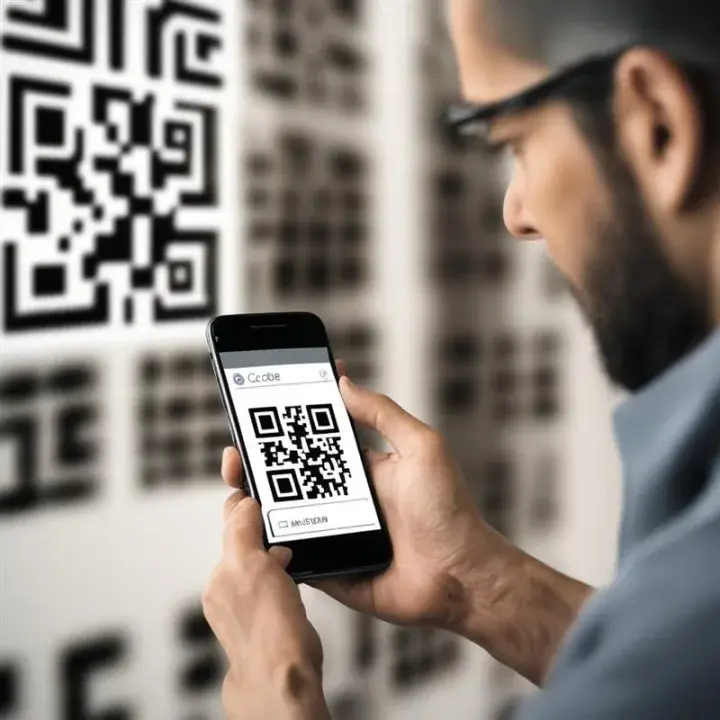In the modern era, QR codes have become ubiquitous, found on everything from dining menus to promotional flyers, both in the physical and digital realms. These small, square barcodes simplify access to a plethora of online resources – be it a website, a special deal, or multimedia content. All it takes is a quick snap with your smartphone camera, and you’re instantly connected to further information.
However, the convenience of QR codes has also attracted the attention of cybercriminals looking to exploit this technology for malicious purposes. These fraudsters have begun crafting counterfeit QR codes as a means to pilfer personal data, disseminate malware, or deceive individuals into handing over money. The emergence of this scam underlines the importance of being vigilant when engaging with QR codes, as threats often lurk beneath their unassuming exterior.
The Evolution of QR Codes.
Originally devised for tracking components in vehicle manufacturing, QR codes have recently seen a resurgence, primarily in the marketing domain. Their ability to offer instant access to data has not only revolutionized the retail and service industries but also unfortunately provided fertile ground for cybercriminal activities.
The Mechanics of the Scam.
In this scam, a phony QR code is slapped onto an otherwise legitimate advertisement, misleading the unsuspecting user. When scanned, this bogus code might reroute you to a phishing site demanding sensitive information like bank details or login passwords. Alternatively, it might initiate the download of harmful software, potentially enabling unauthorized surveillance of your activities, theft of your contact list, or even locking of your device pending a ransom.
Malware and Phishing Disguised as QR Codes.
These digital malefactors manipulate genuine QR codes by overlaying them with counterfeit ones, leading to wrongful redirections or the download of malicious programs.
Beware of Counterfeit Promotions.
Bogus contests or discounts advertised via QR codes can funnel users to sham websites, tricking them into divulging personal details, thus exposing them to identity and financial theft.
How to Safely Navigate QR Codes.
Always ascertain the authenticity of QR codes, particularly when they prompt for personal information.
Choose a reputable QR code scanner app, offers enhanced security measures like URL verification.
Scrutinize URLs before proceeding to ensure they align with the expected site.
Avoid engaging with QR codes that appear tampered with or situated in suspicious contexts.
Regularly update your device and any related apps to shield against known security threats.
Exercise caution when directed to enter personal details or conduct financial transactions through a QR-code-linked site.
In sum, while QR codes offer a bridge to a wealth of information and convenience, they also pose a potential risk if not approached with discernment. By adhering to the precautionary measures outlined above, you can enjoy the benefits of QR technology while safeguarding your personal and financial integrity.

